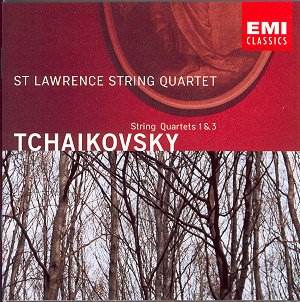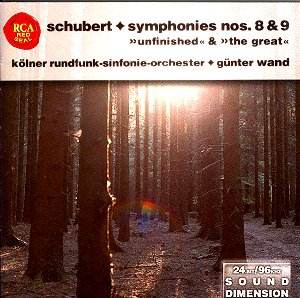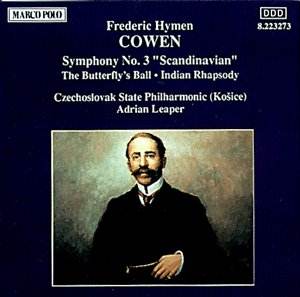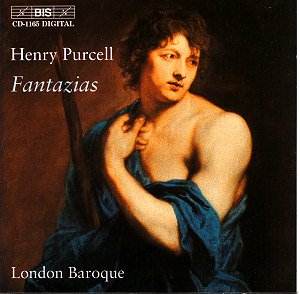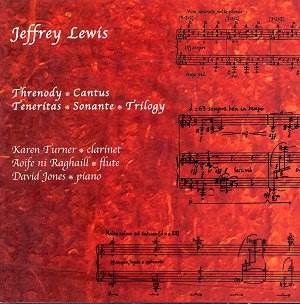 Composer: Jeffrey Lewis
Composer: Jeffrey Lewis
Works: Threnody, Cantus, Teneritas, Sonante, Trilogy
Performers: Karen Turner (clarinet), Aoife ni Raghaill (flute), David Jones (piano)
Recording: ASC Studios, Macclesfield, July 2000
Label: ASC CS CD43
Jeffrey Lewis, a composer whose work navigates the intricate intersections of contemporary classical and avant-garde music, presents a compelling collection of pieces that reflect his distinctive voice and compositional evolution. Born in 1942 in Port Talbot, Lewis has cultivated a unique aesthetic, drawing on a diverse array of influences from modernist masters such as Stockhausen and Ligeti, as well as the lyrical depth of Tippett. This recording features works that span nearly two decades, showcasing his ability to marry emotional depth with technical precision.
The opening piece, Threnody, is a poignant exploration of stasis, employing wide-spaced chords that create a rocking motion, inviting listeners into a reflective sound world. David Jones’s performance emphasizes the delicate balance between tension and release, with the piano’s sonority resonating with understated intensity. This piece sets a meditative tone for the album, one that is further developed in Cantus, a two-movement work for clarinet and piano. Here, Karen Turner’s clarinet work is particularly noteworthy; her fluidity contrasts beautifully with the piano’s percussive textures, which evoke Eastern influences through the use of chimes and gongs. The second movement showcases an increased dynamism, allowing the clarinet’s lyrical lines to emerge with a brooding insistence that complements the piano’s more monumental gestures.
Teneritas, written for flute and piano, conveys an ethereal quality without slipping into the realm of the overly sentimental. Aoife ni Raghaill’s interpretation here is particularly effective; her phrasing and articulation lend an air of clarity to the piece, grounded by the piano’s increasingly insistent chords. This interplay of lightness and gravity is a hallmark of Lewis’s style, revealing the intricate patterns that emerge from apparent simplicity. The tension builds further in Sonante, which is characterized by its choppy, fragmentary nature. This piece, being the earliest on the disc, already hints at Lewis’s preoccupation with rhythmic complexity and textural tension, a precursor to his later developments.
Trilogy, the longest work on this recording, encapsulates Lewis’s compositional journey with its three distinct movements. The opening movement, marked Lentissimo, intenso e molto expressivo (poco flessibile), is a testament to the composer’s ability to create an atmosphere of profound stillness, akin to the color fields of Rothko. The clarity of Jones’s playing allows for the nuances of Lewis’s writing to shine, particularly in the slow outer movements, which frame a central section brimming with animated thematic interplay. The engineering of this recording captures the subtleties of dynamics and articulation, allowing the listener to appreciate the intricate layers of sound that Lewis weaves throughout the work.
This recording stands out not only for its artistic merit but also for its technical execution. The performances are uniformly excellent, with each musician bringing a deep understanding of Lewis’s idiom to their interpretations. The sound engineering is notably clear, allowing the intricate textures and harmonic subtleties to emerge with clarity. Comparisons to other recordings of contemporary chamber music would reveal a commitment to the sonic detail that is sometimes lacking in similar projects.
The collection of works by Jeffrey Lewis is a rich testament to his compositional prowess and interpretative depth. Each piece offers a unique lens through which to appreciate the evolution of his style, revealing both an emotional resonance and a structural sophistication that merits deeper exploration. As the listener journeys through these compositions, one is reminded of the power of contemporary classical music to evoke profound contemplation and emotional response.
